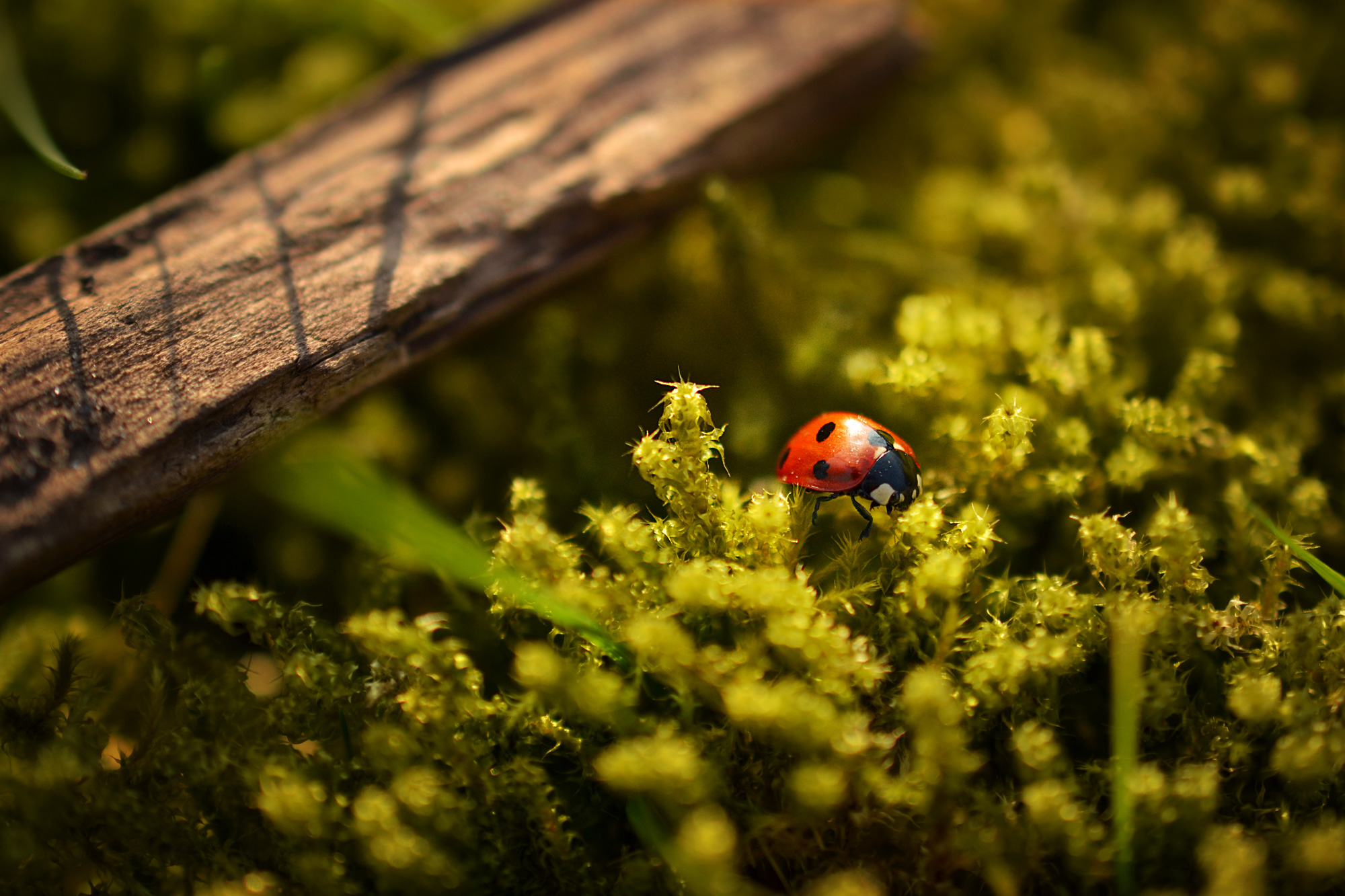Beneficial Insects and Avoiding Harmful Pesticides
When we think about pest control in our gardens, the first thing that often comes to mind is the use of pesticides. While these chemicals might seem like an easy fix, they can have unintended consequences for the environment, wildlife, and even our own health. As someone deeply passionate about both conservation and the natural world, I’ve come to realize that native plants offer an amazing solution to this issue. Not only do they help maintain a healthy and balanced ecosystem, but they also attract beneficial insects that naturally keep harmful pests in check.
In this article, I’ll explain how native plants work in harmony with beneficial insects to provide natural pest control, and why relying on these natural allies is a more sustainable and healthier approach than turning to harmful pesticides.
Why Native Plants Attract Beneficial Insects
Native plants are an integral part of the ecosystem in any given region. Over time, they’ve evolved to coexist with the local wildlife, forming symbiotic relationships with various insects and other creatures. These plants are more likely to attract the right insects—those that contribute to pest control and support overall biodiversity—than non-native species. Here’s how native plants play a vital role in promoting healthy insect populations:
- Ecosystem Support: Native plants provide the ideal food sources, habitat, and shelter for local insects, including pollinators, predators, and parasitoids. This includes insects like ladybugs, lacewings, and predatory beetles that help keep pest populations in check. They also serve as hosts for caterpillars and other larvae, which later develop into beneficial insects.
- Diversity and Balance: Native plants tend to attract a greater diversity of beneficial insects than non-native species. The greater variety of insect life supports a more balanced ecosystem, where pests are naturally controlled by their predators. This reduces the likelihood of pest outbreaks and the need for chemical intervention.
- Sustaining Pollinators: Many native plants offer nectar and pollen to beneficial insects, including pollinators like bees, butterflies, and moths. Pollinators are essential not only for plant reproduction but also for the overall health of ecosystems. By planting native species, you provide a steady food supply for these important creatures, ensuring their continued presence in your garden.
How Native Plants Prevent Pest Problems
While pests like aphids, caterpillars, and spider mites can sometimes threaten our plants, native plants are often better equipped to handle these challenges. Their long-standing presence in the region means they’ve adapted to the local pest pressures and have built-in defenses that make them less susceptible to infestations. Here are a few ways native plants help prevent pest problems:
- Resilient Defenses: Native plants are often naturally pest-resistant due to their evolved chemical compounds, physical defenses (like tough leaves or thorns), or mutualistic relationships with other organisms. This natural resistance means they are less likely to become infested with pests, unlike many non-native plants that might require chemical interventions to keep them healthy.
- Attracting Natural Predators: By planting native plants, you encourage the presence of beneficial insects that act as natural predators to common garden pests. Ladybugs, for example, are natural predators of aphids. Likewise, hoverflies feed on aphids and their larvae, and predatory beetles target a variety of plant-eating insects. These natural predators maintain pest control in a way that’s safe for your garden and the environment.
- A Balanced Approach to Pest Control: Unlike chemical pesticides, which often kill indiscriminately and disrupt the entire ecosystem, the use of native plants supports a balanced approach to pest control. Beneficial insects target specific pests without harming other creatures in your garden, making this a more sustainable, eco-friendly approach.
The Negative Impact of Pesticides
While pesticides can temporarily reduce pest numbers, their widespread use can lead to several unintended consequences:
- Harm to Beneficial Insects: Pesticides don’t just target pests—they can also harm beneficial insects, including those that help pollinate your plants or control pest populations. This creates a cycle where your garden becomes more reliant on chemicals, making it harder to break free from this vicious cycle.
- Impact on Pollinators: Pesticides are a major threat to pollinators like bees and butterflies. These insects are essential to our food supply, as they pollinate many of the crops we rely on. Using pesticides in your garden can inadvertently harm these creatures, which has far-reaching consequences for biodiversity and food production.
- Ecosystem Disruption: The overuse of pesticides can disrupt the delicate balance of your garden’s ecosystem, causing imbalances that make it harder for beneficial insects to thrive. This, in turn, leads to more pests, more pesticides, and a less healthy garden overall.
Natural Pest Control Tips Using Native Plants
If you want to create a garden that is both beautiful and pest-free without resorting to harmful chemicals, here are some practical tips for incorporating native plants into your pest control strategy:
- Plant a Diverse Array of Native Plants: A wide variety of native species can support different beneficial insects, making your garden a haven for pest predators. Include a mix of flowering plants, shrubs, and grasses that provide nectar, pollen, and habitat for a variety of insects.
- Use Companion Planting: Some native plants work well in combination with others to deter pests naturally. For example, planting native marigolds alongside tomatoes can help deter certain pests. Research which plants work well together to naturally repel unwanted insects.
- Avoid Pesticides: Instead of reaching for chemical pesticides, consider using organic alternatives, such as neem oil or insecticidal soap, which are less harmful to beneficial insects. Better yet, focus on creating a healthy, balanced ecosystem by planting a variety of native species that naturally attract pest controllers.
- Create Habitat for Beneficial Insects: Leave areas of your garden undisturbed to provide shelter for beneficial insects. Tall grasses, piles of leaves, and mulch offer ideal hiding places for ladybugs, lacewings, and other beneficial insects.
Harnessing Nature: A Greener Approach to Pest Control
As we move toward a more sustainable and eco-conscious future, using native plants for natural pest control is an effective, practical, and beautiful solution. By choosing plants that have evolved with the local environment, you can reduce the need for harmful chemicals, promote biodiversity, and create a healthier, more resilient garden. Through this approach, you not only reduce pests naturally but also encourage a more vibrant, balanced ecosystem that supports both your plants and the creatures that depend on them.
By embracing native plants in your garden, you’re not just cultivating a space for beauty and growth—you’re helping to build a sustainable future for all of us.
Start exploring the power of native plants in your own garden today! Learn about the beneficial insects in your area and how native plants can work together to keep pests at bay. By choosing native species, you’re taking an important step toward healthier ecosystems, more resilient gardens, and a future that doesn’t rely on harmful pesticides.
FAQ
Native plants attract beneficial insects such as ladybugs, lacewings, and predatory beetles, which help control pest populations. These insects work in harmony with native plants to provide a natural, eco-friendly way to keep harmful pests at bay, reducing the need for chemical pesticides.
Native plants are naturally adapted to local pest pressures, making them more resistant to infestations. They support a balanced ecosystem by attracting the right mix of beneficial insects, helping control pests without harming pollinators or other beneficial organisms.
Yes! Native plants are often more resilient to pests due to their evolved natural defenses. By planting them, you help create a habitat for natural predators that can control common garden pests, such as aphids and spider mites, without the need for chemicals.
Pesticides can harm not only the pests but also the beneficial insects that help control pest populations and pollinate plants. This disruption can lead to increased reliance on chemicals, creating a cycle that’s harmful to the ecosystem.
To naturally deter pests, plant a diverse range of native species that provide food and shelter for beneficial insects. Companion planting and creating habitats like tall grasses and mulch also help support a healthy, balanced ecosystem, reducing the need for harmful pesticides.

